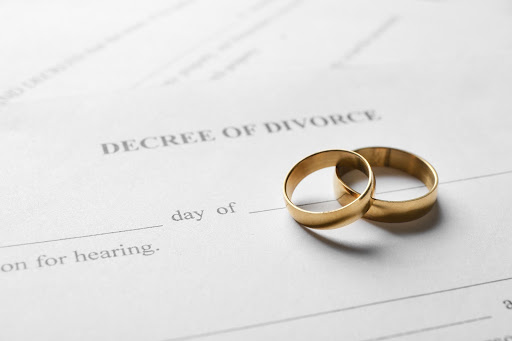How is Annulment Different From Divorce?
The biggest and most obvious difference between there is, is that a divorce terminates a legally valid marriage, whereas an annulment officially declares that a marriage has been legally invalid.

At the center of every separation is usually one or both spouses expressing their desire to leave the union.
Legally, a divorce proceeding is initiated when both parties acknowledge that there was indeed a marriage between them. An annulment conversely is sought when one or both parties believe that there was legality in their marriage from its inception.
Divorce
Many times, “Irreconcilable differences” is presented as the grounds for a no-fault divorce. A no-fault divorce is one in which neither party is needed to show fault on the part of their partner. This is legal in every state. However, some states require that the couple stay apart for a while before either of them can file for divorce.
The most commonly cited grounds for fault divorces are adultery, imprisonment, or abandonment.
During any divorce proceeding, there are other issues that need to be resolved in the court as well. Usually, fault divorce cases lead to larger settlements for the parties found without fault. These issues involve:
- Property
- Finances
- child custody
Annulment
An annulment is a case that seeks to end a marriage that at least one part maintains should never have happened at all. If the marriage was conducted despite hidden facts, like a secret child or sometimes a secret illness, the union might be legally voidable.
The legal grounds for such a claim vary from state to state but usually may be accepted if one or both spouses were:
- forced and tricked into the union.
- Unable to make a decision to marry because of a mental disability or intoxication.
- Already married at the time the marriage took place(bigamy).
- Not of the age of majority.
Other valid legal grounds include:
- The union was incestuous.
- Concealment of major issues
However, because one of these conditions has to be fulfilled for an annulment to be granted, they are extremely rare.
Legal Aid
From a legal perspective, both kinds of marriage dissolution can be very complicated, often requiring expensive and prolonged legal proceedings. Both begin in a similar way when one or both adults officially ask the court to grant either a divorce or an annulment. In some cases, the proceedings may be short and fairly affordable when both parties agree to end the union without too many disagreements and disputes.
What Happens After a Divorce or Annulment?
After an annulment is granted, the marriage is seen to have never legally occurred. It is as though the clock is turned back to a time before the marriage. However, after a divorce case is concluded, the parties may still have legal duties to perform. These include spousal support, child-rearing, and equitable division of common property.
Finances After Divorce

Religious Influence
Many religions have doctrines regarding divorce and annulment. Regularly, the religious clergy may allow for divorce or annulment. Obtaining this sort of permission from your religious leaders is typically a completely isolated process from the legal court process.
The rules governing divorce and annulment in your specific religion typically determine whether the former partners have permission to remarry within the confines of the religion or in a religious ceremony. Some religions may even keep divorced partners from taking part in some religious rituals.
You’ll have the opportunity to speak with one of our experienced attorneys who can guide you toward the most productive next step for your divorce. With more than 130 years of combined experience, our firm is one of the oldest and most respected law firms in the Boca Raton area. Contact us now and get the best legal aid available.
